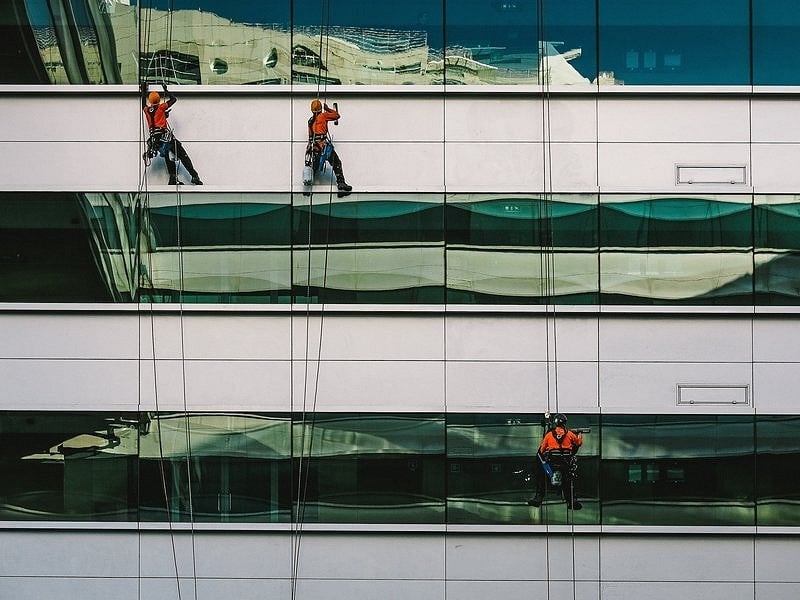
Joanna Castle discusses the topic of women in rope access. In this traditionally male-dominated industry, we may be on the cusp of change...
Statistically, only a small percentage of those working in rope access identify as women. This fact may come as no surprise, as similar statistics can be seen throughout the entire industrial sector: construction, fire fighting, mechanics, plumbing, carpentry - the list of professions dominated by men goes on and on.

But why the lack of female rope access technicians? We have certainly seen a noticeable increase in the number of female climbers - isn't it about time that we see the same upward trend in the rope access industry?
It's not that the female form is incapable of handling the work, nor is it a complete lack of interest in the work from women across the board. However, there do appear to be other more subtle factors at play and in this article we'll be discussing the role of women in the work at height industry.
Is rope access 'men's work'?
There's a prevailing idea in our society that jobs involving manual labour and physical strength are not 'appropriate' for women. Rope access work is undeniably quite taxing and physical, involving a great deal of strength and confidence – perhaps some would still see rope access as 'men's work' for this very reason. Unfortunately, attitudes such as these often deter women from even considering a career in rope access, depriving the industry of a large number of strong and capable workers.
Let's just get one thing straight: both men and women are capable of performing rope access work to a very high standard. Common misconceptions stem from the fact that most people who do manual work are indeed men. This fact has no bearing whatsoever on the ability of women to perform rope access work, and you needn't be deterred from the industry solely on the basis of statistics and outdated stereotypes.
Women on the ropes
Despite the fact that women are underrepresented in the rope access industry, we have seen the number of female trainees and technicians slowly increasing in recent years. Indeed, we now live in an age where there are more and more women pursuing careers in manual trades.
This proves that being underrepresented doesn't mean being discouraged! There is no reason why a strong presence of men in the industry should deter willing and capable women from getting involved and diversifying workforces the world over. Just look where it got Loui McCurley, one of the founding members of the Society of Professional Rope Access Technicians (the US equivalent of IRATA).
Dispelling the misconceptions
As with many other industries, the male-dominated spaces involved in rope access work can be off-putting for many women. Some worry about feeling left out, experiencing sexual harassment or being given expectations lower than those held for their male counterparts. However, with the level of trust and concentration required on the ropes, workers are required to act as members of one big interdependent team in which everyone plays a fundamental part. In practice, therefore, there's often no time for anything but complete confidence in one another.
The most important factor is that everyone works hard, pulls their weight, looks out for one another and stays safe. In addition, we have only ever experienced companies and contractors in the rope access industry that are entirely professional and respectful. Ultimately, their number one priority is that technicians are trained, experienced, capable and ready to get the job done!
Give rope access a go
As we all continue to strive for gender equality in the workplace, hopefully we will begin to see more and more women on the ropes. Of course it can be annoying having to prove yourself against existing prejudices, but the only way for attitudes to change is for women everywhere to ignore the doubts, forget the stereotypes and show everyone what they are truly capable of through hard work.
There are a whole variety of rope access jobs to experiment with and there is sure to be something for every type of worker, whatever your gender, skills and preferences are. If you're a skilled climber, completely comfortable with heights and manual work, able to work well under pressure and interested in the rope access industry, don't be deterred by the misconceptions. Know your worth: get trained up, get some experience, get stuck in!














Comments